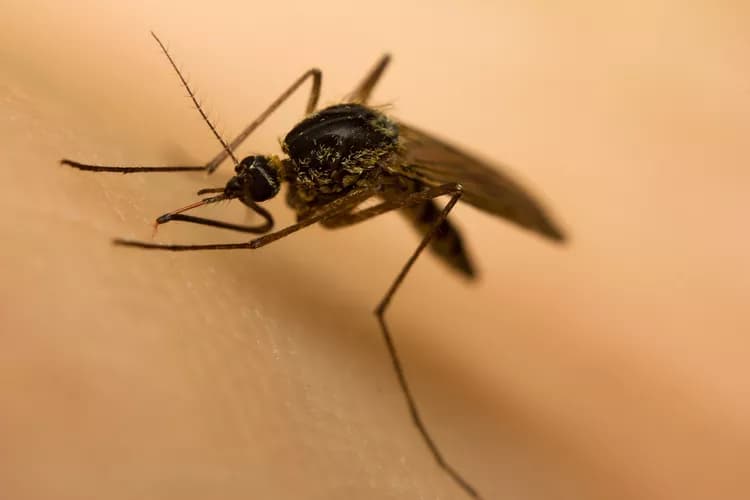Local mosquito transmission of Zika virus infection (Zika) has been reported in Puerto Rico. Local mosquito transmission means that mosquitoes in the area are infected with Zika virus and are spreading it to people.
Because Zika virus is primarily spread by mosquitoes, CDC recommends that travelers to Puerto Rico protect themselves from mosquito bites.
Sexual transmission of Zika virus from a male partner is also possible, so travelers are also encouraged to use condoms or not have sex.
Most people infected with Zika virus do not get sick. Among those who do develop symptoms, sickness is usually mild, with symptoms that last for several days to a week. Zika may also be linked to Guillain-Barré syndrome (GBS), a rare disorder that can cause muscle weakness and paralysis for a few weeks to several months. Most people fully recover from GBS, but some have permanent damage.
Specific areas with Zika are often difficult to determine and are likely to change over time. As more information becomes available, this travel notice will be updated. Please check back frequently for the most up-to-date recommendations.
What can travelers do to prevent Zika?
There is no vaccine or medicine for Zika. Travelers can protect themselves by preventing mosquito bites:
- Cover exposed skin by wearing long-sleeved shirts and long pants.
- Use EPA-registered insect repellents containing DEET, picaridin, oil of lemon eucalyptus (OLE, also called para-menthane-diol [PMD]), or IR3535. Always use as directed.
- Pregnant and breastfeeding women can use all EPA-registered insect repellents, including DEET, according to the product label.
- Most repellents, including DEET, can be used on children older than 2 months. (OLE should not be used on children younger than 3 years.)
- Use permethrin-treated clothing and gear (such as boots, pants, socks, and tents). You can buy pre-treated clothing and gear or treat them yourself.
- Stay in places with air conditioning and window and door screens to keep mosquitoes outside.
- Sleep under a mosquito bed net if air conditioned or screened rooms are not available or if sleeping outdoors.
- Mosquito netting can be used to cover babies younger than 2 months old in carriers, strollers, or cribs to protect them from mosquito bites.
Sexual transmission of Zika virus from a male partner is possible. If you have sex (vaginal, anal, or oral) with a man while traveling, you should use condoms.
After travel:
Most people infected with Zika virus do not feel sick. If a mosquito bites an infected person while the virus is still in that person’s blood, it can spread the virus by biting another person. Even if they do not feel sick, travelers returning to the United States from an area with Zika should take steps to prevent mosquito bites for 3 weeks so that they do not spread Zika to uninfected mosquitos.
Men who have traveled to an area with Zika should use condoms to protect their sex partners. If the man’s partner is pregnant, the couple should either use condoms the right way every time or not have sex during the pregnancy.
Pregnant women should talk to their doctor about testing for Zika (see below).
If you feel sick and think you may have Zika:
- Talk to your doctor if you develop a fever with a rash, joint pain, or red eyes. Tell him or her about your travel.
- Take acetaminophen (paracetamol) to relieve fever and pain. Do not take aspirin, products containing aspirin, or other nonsteroidal anti-inflammatory drugs, such as ibuprofen.
- Get lots of rest and drink plenty of liquids.
If you are pregnant:
Pregnant travelers returning from areas with Zika can be tested for Zika virus infection.
- If you develop a fever with a rash, joint pain, or red eyes, talk to your doctor immediately and tell him or her about your travel.
- If you do not have symptoms, testing can be considered 2–12 weeks after you return from travel.
Clinician Information
Health care providers should be alert to pregnant patients returning from countries or territories with active Zika virus transmission. Clinicians should test pregnant women with symptoms of Zika during travel or within 2 weeks of travel. Asymptomatic pregnant women who have traveled to areas with ongoing Zika virus transmission can also be offered testing.
- For pregnant women with symptoms of Zika, testing is recommended at the time of clinical illness.
- For asymptomatic pregnant women, testing can be offered 2–12 weeks after return from travel.
See CDC's Updated Guidelines for Health Care Providers Caring for Pregnant Women and Women of Reproductive Age during Ongoing Zika Virus Transmission for additional recommendations related to Zika testing and follow-up care.
The above post is reprinted from materials provided by Centers for Disease Control and Prevention. Note: Materials may be edited for content and length.
Disclaimer: DoveMed is not responsible for the adapted accuracy of news releases posted to DoveMed by contributing universities and institutions.
Related Articles
Test Your Knowledge
Asked by users
Related Centers
Related Specialties
Related Physicians
Related Procedures
Related Resources
Join DoveHubs
and connect with fellow professionals


0 Comments
Please log in to post a comment.